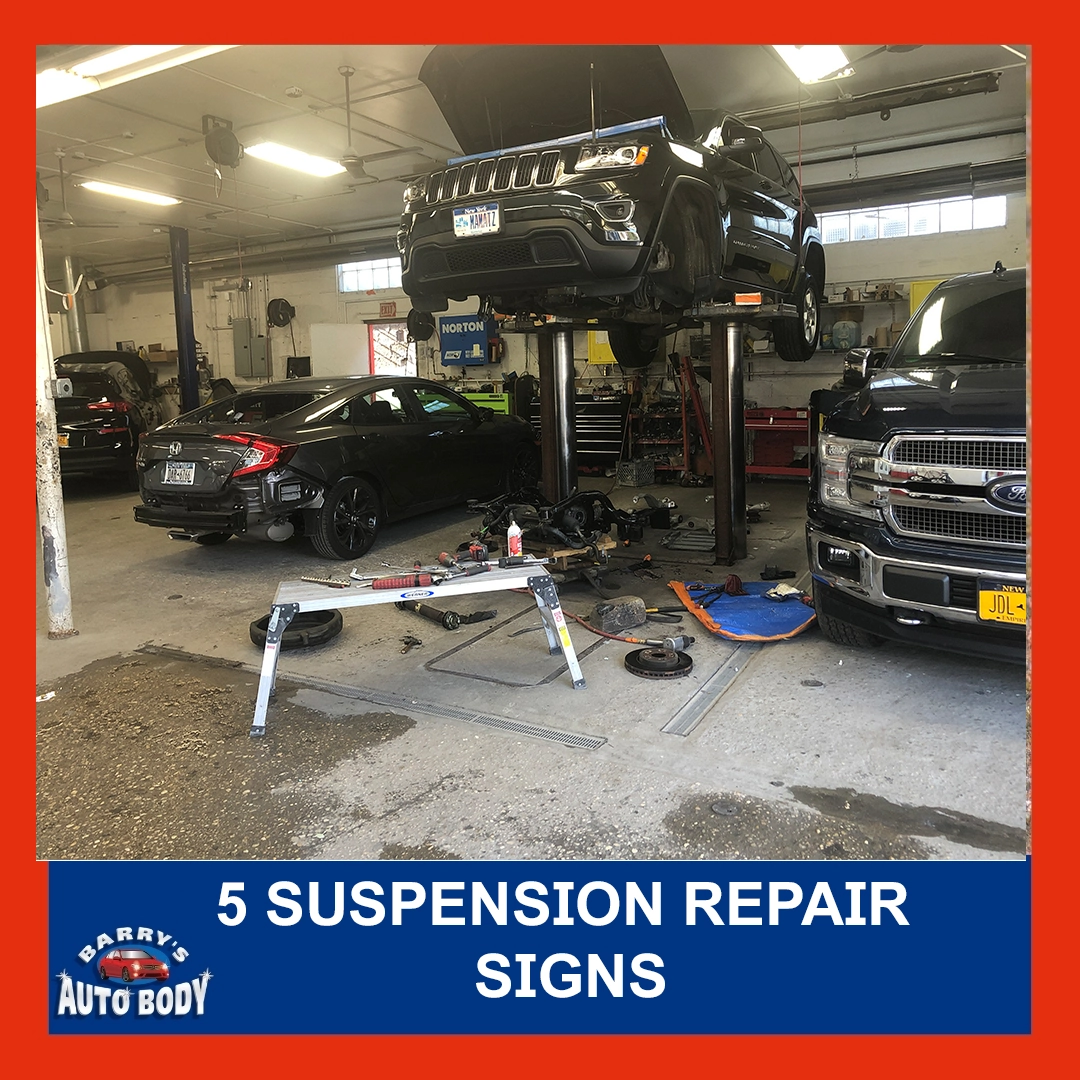Many signs indicate your car needs suspension repair, and ignoring these can turn out to be a costly mistake.
Your car’s suspension system consists of shock absorbers, bushings, ball joints, springs, and anti-roll bars. They provide the necessary stiffness in the suspension. To prevent your vehicle from riding up or down during acceleration or braking. If one of these components breaks down, you’ll experience severe problems with your vehicle’s handling and controllability.
Suspension repairs are an essential part of your car’s maintenance schedule. But there are some signs that you need to be aware of before you take your vehicle in for service. Here are four warning signs that you need suspension repair.
Nose-Diving When Stopping
This symptom comes from anti-roll bars or stabilizer bar helping your car to round corners. But when the spring inside bumps against one of the ends, it will push down on both ends and change direction abruptly without warning. It slows you down only to bounce back again once the pressure is released, creating a nose dive or unstable ride quality.
If you have a noticeable nose dive, it’s going to be dangerous. If your anti-roll bar ends have started failing on their own during deployment without any correlation to new noises, call an auto shop specializing in suspension repairs first before taking matters into your hands.
Excessive Bounce When Driving
If you experience excessive bouncing or moving while driving, it could be from improper alignment of the front suspension coils or bad shocks/struts, which causes very rough ride quality due to the binding of the suspension components. However, if this wakes you up at night, then it’s time for an alignment since one coil will be misaligned or possibly cracked altogether by that point.
Suspensions should absorb vertical and lateral impacts to avoid road shock, though it stresses the vehicle every time it encounters the road surface. Road shocks can sometimes affect your car even if you’re riding on smooth roads; however, if the problem seems to be at large, you need to take the vehicle in for a close inspection.
Uneven Tire Wear
An uneven tire is another strong indicator that your suspension requires a maintenance check. Servicing your vehicle’s suspension helps you to prevent and correct this issue.
Proper alignment will ensure that the tires wear evenly at all times. It can be important for safety on long trips since it allows you to rotate your vehicle’s weight into them in areas that may need extra support, lending greater stability than the suspension typically offers.
Fluid Leaks
Take a look under your vehicle, and you find oil leaks from shocks or struts; this might indicate a damaged suspension. If the joints of shocks seem to be overly greasy and leaking fluid, it is highly likely that they are not performing as expected, and if you overlook this, you eventually will have to replace the suspension parts. To prevent this, inspect the shocks or struts after each service interval to see if they need doing. Also, look under the wheels for any fluid leaks to the axles.
Difficulty in Steering
Another consequence of a damaged suspension is that your car becomes noticeably difficult to steer/control. Although this can be a standard suspension feature, it is often due to poor or too aggressive alignment and lack of wheel balancing. This should be corrected immediately as it could easily lead you to an expensive future repair.
A failing suspension system can easily take away your vehicle’s maneuverability; you may feel that your car drifts or pulls while taking turns; this means that your car’s suspension fails to keep the body aligned with the centrifugal force of a turn.
In such situations, each time you turn the wheel to steer, your tires hit and rub, creating turbulence so it can shake up and knock your car/truck.
Suspension systems need to be inspected and maintained on a regular basis to ensure proper functioning and longevity. Having a suspension system that’s not functioning as expected can lead to serious damage, which could be expensive to repair.
If you notice any of the signs above, it’s a good idea to have your suspension checked before it becomes a serious problem. Contact us if you need further advice or a certified technician to assess your vehicle’s suspension system.

